Top 10 Effects of Oil Spills on Marine Ecosystems
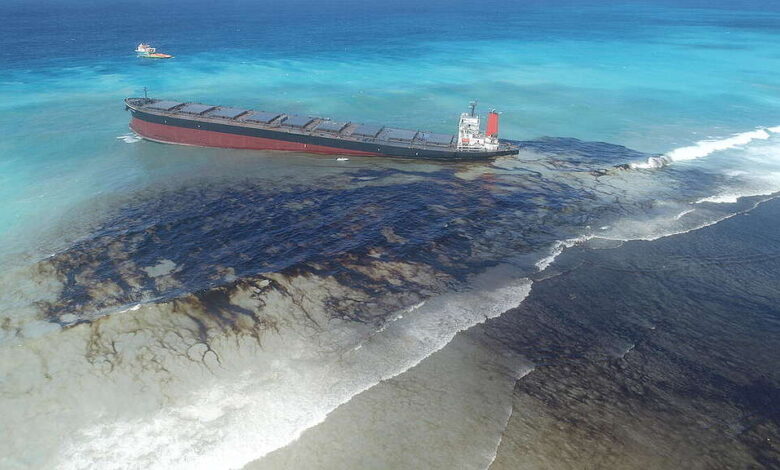
Top 10 Effects of Oil Spills on Marine Ecosystems? Oil spills are a significant environmental issue that causes devastating impacts on marine ecosystems. When an oil spill occurs, it releases large amounts of oil into the ocean, contaminating the water and causing harm to marine life. The effects of oil spills on marine ecosystems can be long-lasting and, in some cases, irreversible.
Introduction
Oil spills are a global issue that has affected marine ecosystems worldwide. The effects of oil spills are numerous, including environmental, social, and economic impacts. In this article, we will focus on the top 10 effects of oil spills on marine ecosystems. We will discuss how oil spills occur, their immediate and long-term effects on marine life, habitat, and biodiversity, and the measures taken to prevent and mitigate them.
Oil Spill Definition and Causes
An oil spill is a release of liquid petroleum into the environment, typically in water bodies such as oceans, seas, and rivers. Oil spills occur due to human-made activities, such as transportation of oil by tankers and pipelines, offshore drilling, and accidents in refineries. Natural disasters such as hurricanes and tsunamis can also cause oil spills.
Impact of Oil Spills on Marine Ecosystems
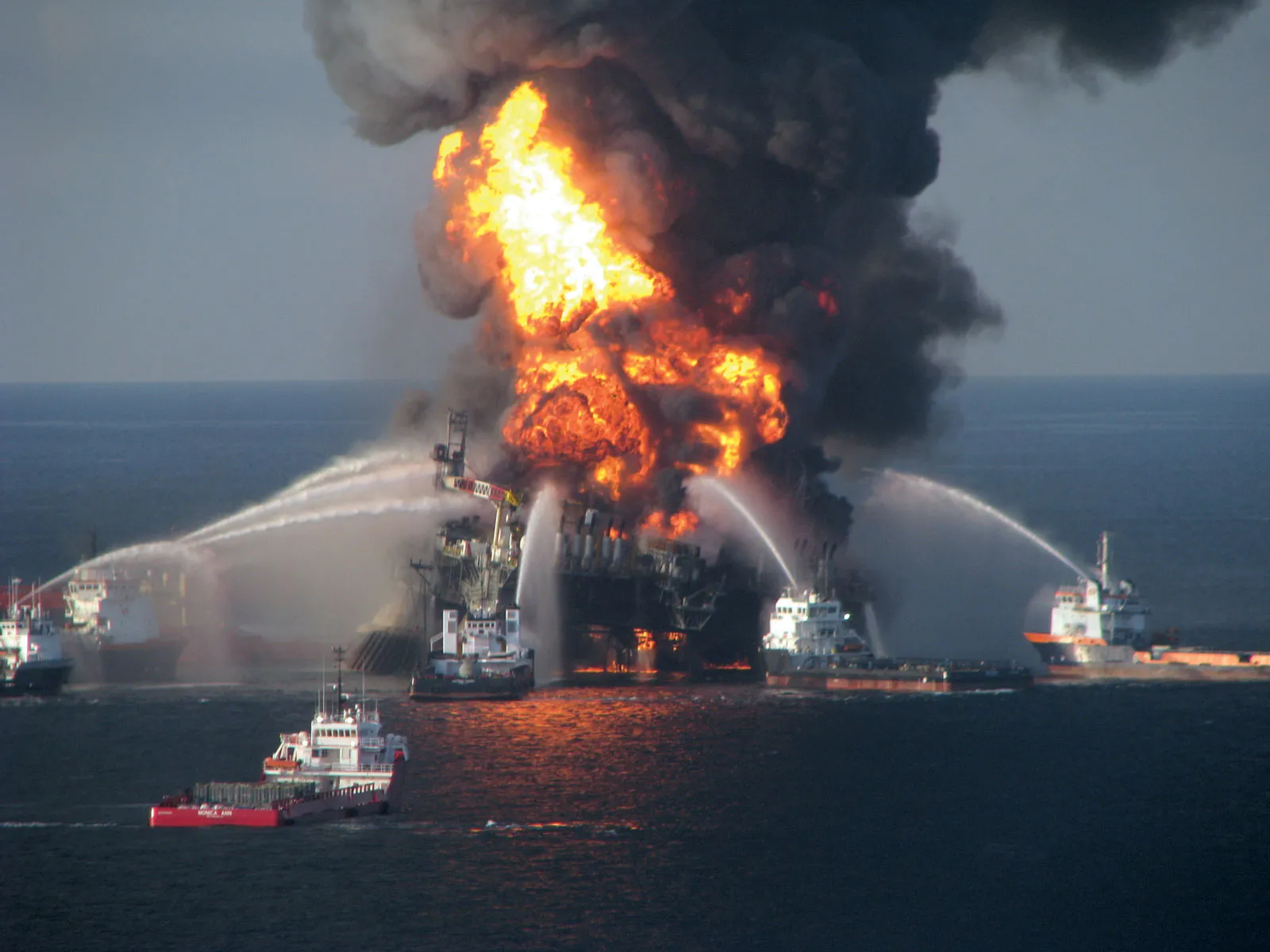
Oil spills have immediate and long-term effects on marine ecosystems. The immediate impact of oil spills on marine life includes:
Immediate Physical Impact
Oil spills can cause immediate physical harm to marine life. When oil spills into the water, it forms a thick layer on the surface, preventing sunlight from penetrating the water. This layer reduces oxygen levels, making it difficult for marine species such as fish, sea turtles, and marine mammals to breathe.
Contamination of Water and Sediments
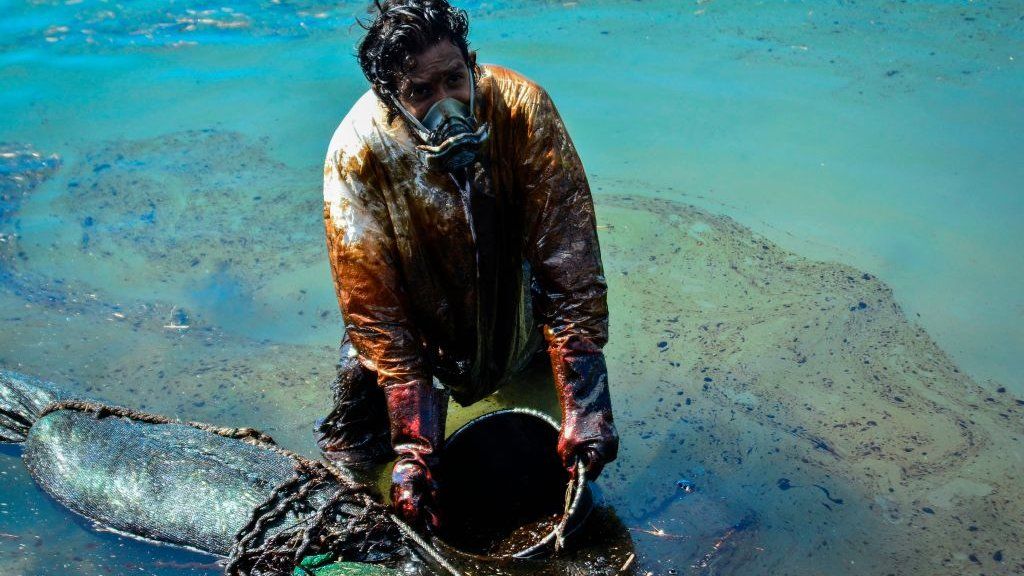
Oil spills contaminate the water and sediments, which can cause long-term harm to the marine ecosystem. The oil’s toxic chemicals can persist in the environment for years and harm marine life, including plankton, algae, and other small organisms.
Disruption of Marine Food Chain
Oil spills can disrupt the marine food chain, which can cause cascading effects throughout the ecosystem. Small organisms such as plankton and algae can be killed by oil spills, reducing the food source for larger organisms such as fish, birds, and marine mammals.
Reduction of Biodiversity
Oil spills can cause a reduction in marine biodiversity. The toxic chemicals in oil can harm and kill many species of marine life. In addition, some species may migrate to avoid the oil spill, causing a shift in the ecosystem’s balance.
Read More: 10 Reasons to Invest in a Smart Oven In 2023
Effects of Oil Spills on Specific Marine Species
Oil spills can have severe effects on specific marine species. Here are a few examples:
Fish
Fish are affected by oil
spills in several ways. The oil can damage their gills, causing them to suffocate. It can also damage their internal organs and alter their behavior, making them more susceptible to predators. Furthermore, the consumption of contaminated food can transfer the toxic chemicals from the oil spill to humans, leading to health issues.
Sea Turtles.com
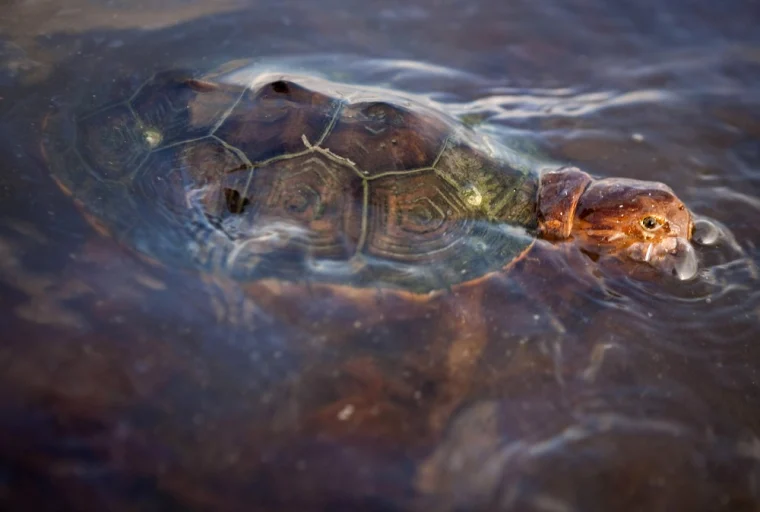
Oil spills can have a particularly devastating impact on sea turtles, which are already threatened and endangered in many parts of the world. The oil can coat the turtles’ shells and skin, interfering with their ability to regulate their body temperature and leading to dehydration and hypothermia. Oil ingestion can also cause internal damage and result in organ failure, which can be fatal. Additionally, oil spills can destroy the habitats where sea turtles live and feed, making it difficult for them to find suitable nesting and foraging grounds. The long-term impact of oil spills on sea turtles can be severe, with impacts on their reproductive success and overall population size. Conservation efforts aimed at protecting sea turtles from oil spills are crucial, including rescue and rehabilitation efforts, monitoring of populations in affected areas, and targeted measures to protect their habitats. It is important to recognize the unique vulnerabilities of sea turtles in the face of oil spills and work to minimize their impact on these already threatened species.
Birds
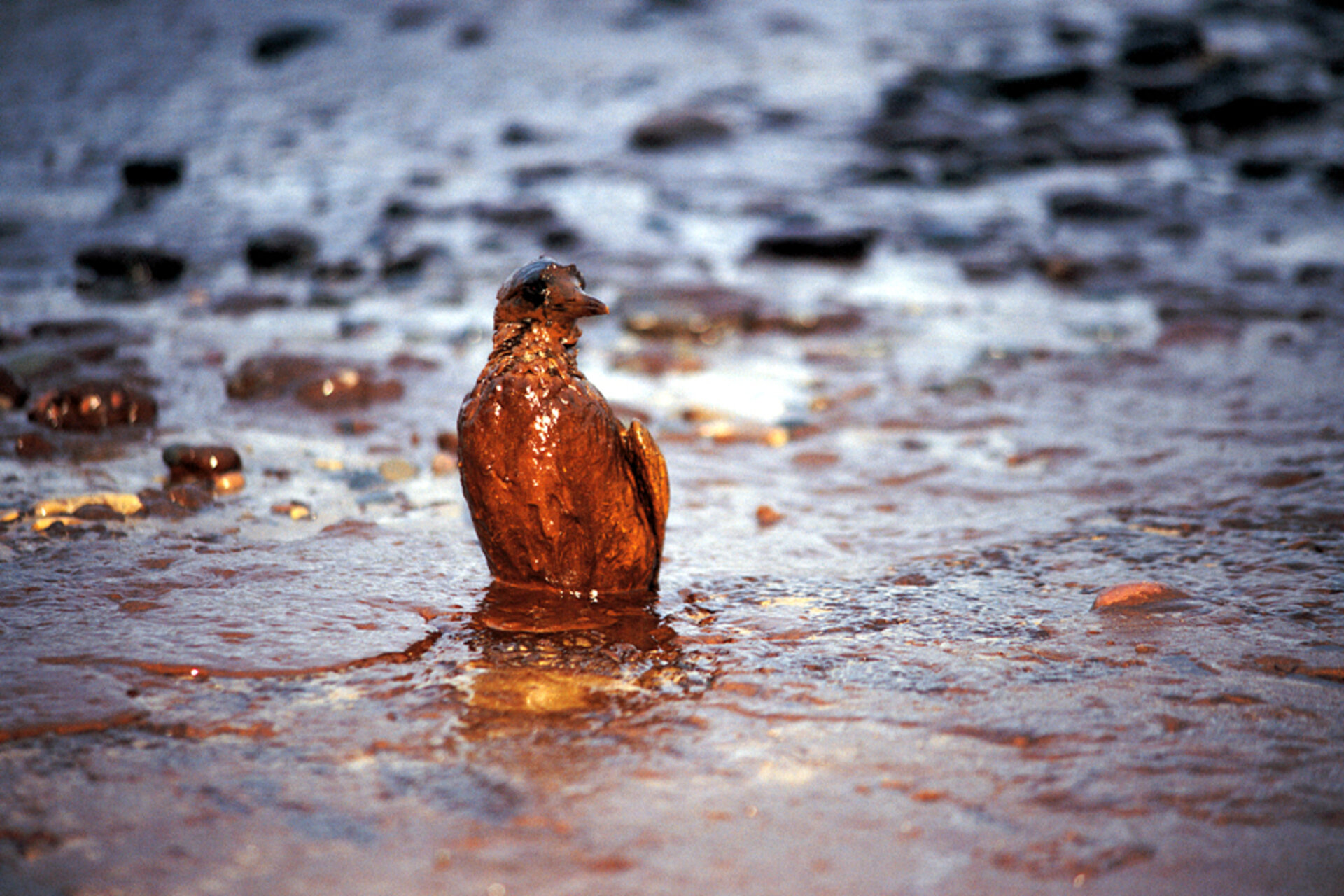
Oil spills can harm birds in several ways. The oil can cause their feathers to mat and lose their insulation properties, causing hypothermia. Birds can also ingest oil, leading to damage to their internal organs and digestive system. Furthermore, oil spills can cause a decline in bird populations, affecting the ecosystem’s balance.
Marine Mammals
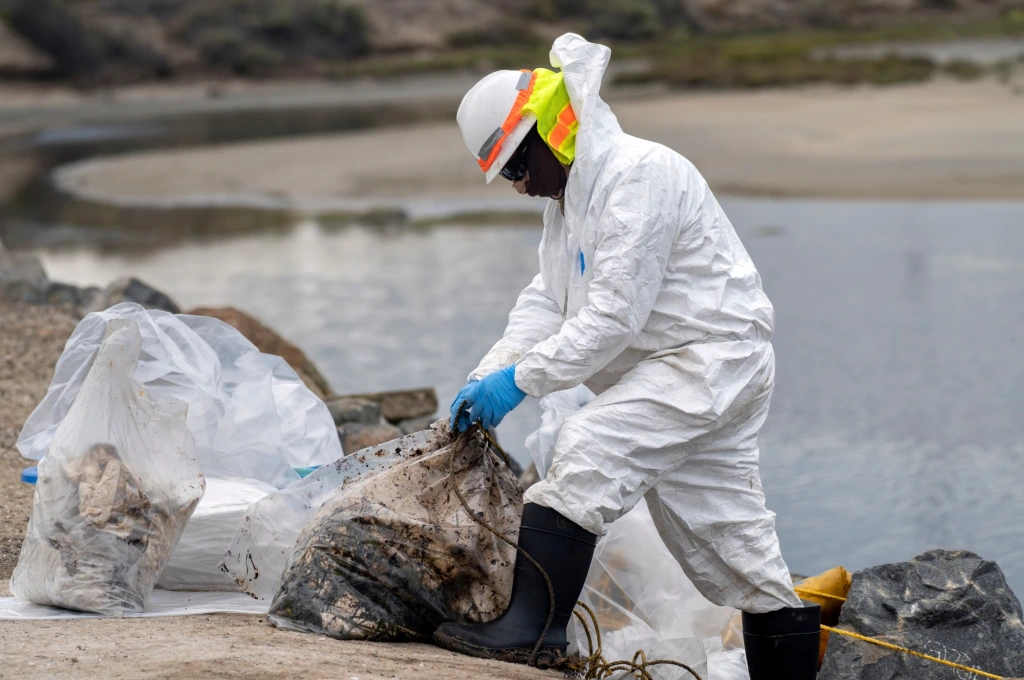
Marine mammals, such as whales and dolphins, are affected by oil spills in several ways. The toxic chemicals in the oil can damage their respiratory and immune systems, leading to illness and death. Moreover, oil spills can also affect their habitat, such as coral reefs and wetlands, leading to a decline in their food source and a shift in their migration patterns.
Read More: 10 Reasons to Invest in a Smart Oven In 2023
Effects of Oil Spills on Marine Habitat
Oil spills can have severe effects on the marine habitat, leading to long-term ecological damage. Here are a few examples:
Coral Reefs
Oil spills can damage coral reefs, which are vital to the marine ecosystem’s health. The oil can smother and suffocate the coral, leading to their death. Coral reefs provide habitat and food for many species of marine life, and their loss can cause a decline in biodiversity.
Wetlands
Wetlands are highly susceptible to oil spill contamination, as they provide habitat for many species of marine life. The oil can damage the vegetation and soil, leading to a decline in the food source for many species. Furthermore, wetlands are essential for filtering pollutants and maintaining water quality, and their loss can lead to long-term ecological damage.
Sandy Beaches
Oil spills can contaminate sandy beaches, making them unsafe for recreational use. The oil can also damage the shoreline’s vegetation and soil, leading to erosion and long-term damage to the beach ecosystem.
Long-Term Effects of Oil Spills on Marine Ecosystems
Oil spills can have long-term effects on marine ecosystems, leading to irreparable ecological damage. Here are a few examples:
Depletion of Oxygen Levels
Oil spills can reduce oxygen levels in the water, leading to hypoxic conditions that are harmful to marine life. Hypoxic conditions can cause fish and other species to suffocate, leading to a decline in biodiversity.
Damage to DNA and Reproductive Systems
The toxic chemicals in oil spills can damage marine life’s DNA and reproductive systems, leading to long-term health effects and population decline.
Clean-Up and Recovery Efforts
Clean-up and recovery efforts after an oil spill are essential to mitigate the immediate and long-term effects on marine ecosystems. Clean-up efforts involve the removal of oil from the water and sediments, while recovery efforts involve restoring the affected habitat and monitoring the ecosystem’s health.
Prevention and Mitigation Measures
Prevention and mitigation measures are essential to reduce the risk of oil spills and minimize their impacts on marine ecosystems. Measures include improving oil transportation safety, implementing regulations and standards for oil drilling, and investing in renewable energy sources.
Conclusion
oil spills have significant and long-lasting effects on marine ecosystems. They can damage and kill a wide range of marine species, including fish, sea turtles, birds, and marine mammals. Oil spills can also have severe impacts on the marine habitat, leading to long-term ecological damage and loss of biodiversity. The effects of oil spills on the marine ecosystem can be devastating, with far-reaching consequences that can last for years, if not decades. Clean-up and recovery efforts are essential to mitigate the immediate and long-term effects of oil spills, but prevention and mitigation measures are equally important. It is essential to improve oil transportation safety, implement regulations and standards for oil drilling, and invest in renewable energy sources to reduce the risk of oil spills and minimize their impacts on marine ecosystems. As a global community, we must work together to prevent and mitigate the impact of oil spills on marine ecosystems, ensuring that our oceans remain healthy and thriving for generations to come.










